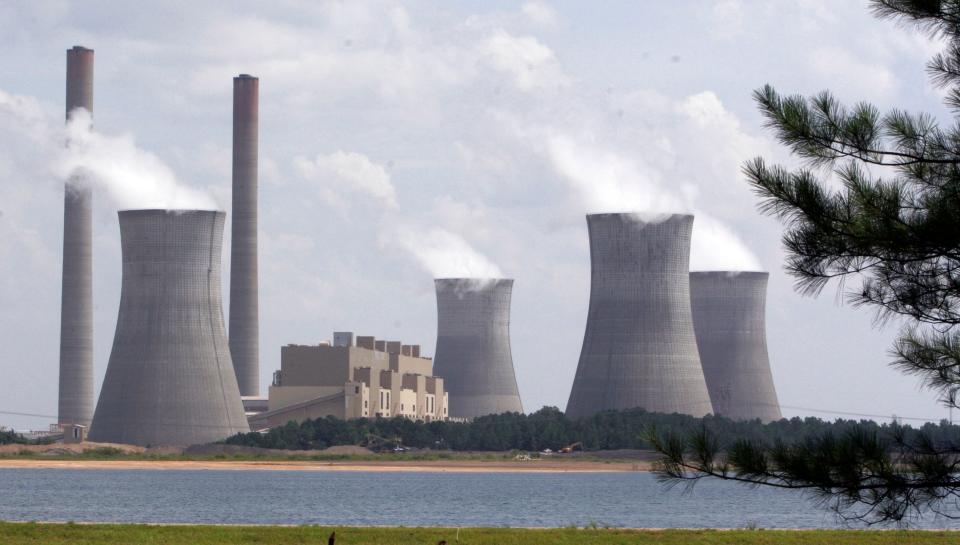Trump proposal to weaken mercury standards could have broad impact on other anti-pollution rules
WASHINGTON – The Environmental Protection Agency is proposing to roll back mercury emission standards applied to power plants by significantly devaluing the health benefits that justified the current rule. Critics say the move could be used to weaken a raft of other federal environmental regulations that President Donald Trump wants to eliminate.
The Mercury and Air Toxics Standards, or MATS as it's called, went into effect in 2015 under the Obama administration. At the time, the cost to industry for installing the technology to reduce mercury emissions was estimated at nearly $10 billion, while the health benefits were calculated at only several million dollars.
But the Obama administration also factored in "co-benefits" the rule would produce, such as reductions in soot and nitrogen oxide, raising the maximum benefits to as much as $90 billion through reduced premature deaths, sick days and hospital visits.

Mercury is a neurotoxin that can affect brain development, particularly in infants and young children. It's primarily ingested through the consumption of fish.
The rule had an immediate effect. Reported emissions declined 69 percent between 2014 and 2016 after coal-fired power plants installed technology to meet the new clean air standards.
On Friday, the EPA announced it was "providing regulatory certainty by transparently and accurately" recalculating the math behind the existing rule – essentially removing the co-benefits under Obama from the equation.
The revised estimate, which shows MATS costing the industry far more than the health benefits it provides the general public, makes it legally easier for the administration to defend the weaker standard in court.
More: Latest casualty in U.S. budget battles: a popular fund to protect parks and wildlife refuges
More: Trump EPA takes aim at Obama-era clean water rules, prompting outcry from environmentalists
As a result, “the Agency proposes to determine that it is not “appropriate and necessary” to regulate HAP emissions from power plants under … the Clean Air Act,” according to the EPA statement.
The agency is accepting comments on the proposal for 60 days after publication in the Federal Register and then will hold a public hearing.
Environmental and public health advocates blasted the announcement.
“With this action, EPA is also setting a dangerous precedent that a federal agency –charged with protecting the environment and public health – will no longer factor in all the clear health, environmental, and economics benefits of clean air polices, such as reducing cancer and birth defects,” said Sen. Tom Carper, D-Delaware, who is the top Democrat on the Senate Environment and Public Works Committee.
Harold P. Wimmer, president and CEO of the American Lung Association, said the current rule shouldn't be weakened considering it's estimated to prevent 11,000 premature deaths each year and has dramatically reduced mercury pollution, a potent neurotoxin that causes brain damage in babies.
“There is no legitimate justification for this action," he said. "EPA’s proposal to undermine the Mercury and Air Toxics Standards is one of its most dangerous efforts yet."

But Jeff Holmstead, who served as EPA's Air Administrator under George W. Bush, said the initial calculation by the Obama administration tipped the scales in favor of government regulation given that the cost to industry was nearly $10 billion for providing a direct benefit that amounted to less than $10 million.
"With this huge disparity between the costs and benefits that EPA was supposed to be looking at, it seemed pretty outrageous for EPA to claim that it was appropriate to regulate power plants under this particular section of the Clean Air Act," he said.
Few think utilities would spend money to remove what they've installed.
And the EPA proposal makes clear "the emission standards and other requirements of the MATS rule would remain in place as EPA is not proposing to remove coal- and oil-fired power plants from the list of sources that are regulated under (the Clean Air Act)."
But the larger concern among public health advocates is that the Trump administration could use the same approach of reducing health benefits for other regulations as it's doing with MATS.
Deregulation has been a cornerstone of the Make America Great Again agenda under Trump, who views many of the anti-pollution rules implemented under former President Barack Obama as obstacles to his plans for economic expansion.
Celia Chen, director of the Dartmouth Toxic Metals Superfund Research Program at Dartmouth College, said the dangers of mercury are more known than they were just a few years ago when the rule was being crafted under Obama. By changing the calculation behind MATS, other regulations could be weakened using similar tactics.
"That's the big worry," she said. "If you get to pick and choose what the costs are and what the benefits are then you can have it come out the way you want."
This article originally appeared on USA TODAY: Trump proposal to weaken mercury standards could have broad impact on other anti-pollution rules

